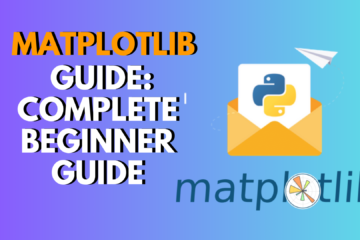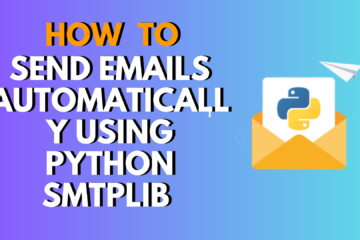
In today’s digital age, AI content creation is transforming how creators produce AI-generated content efficiently. From AI podcasting tools to AI transcription services, artificial intelligence streamlines workflows, making AI podcast production faster and more accessible.
In this blog, we’ll explore how AI can automate the podcasting process with a Python script that handles text-to-speech conversion, AI audio editing, and transcription.
Ai content creation and podcasting python code github
Ai content creation and podcasting python code generator
Ai content creation and podcasting python code free
Ai content creation and podcasting python code example
The Power of AI in Podcasting
The rise of AI voice cloning and AI podcast editing is changing how content is created and shared. Here are some key ways AI is enhancing podcasting:
- AI-generated voiceovers for realistic narration.
- AI podcast transcription to easily create subtitles and show notes.
- AI podcast automation to streamline production and editing.
- AI podcast monetization strategies based on audience insights.
- AI podcast analytics to optimize content performance.
By incorporating these innovations, podcasters can reach broader audiences with AI podcast marketing, AI podcast promotion, and automated AI podcast distribution across platforms.
AI-Powered Podcast Workflow: Python Code
The following Python script demonstrates an AI-driven podcast workflow. This script:
- Converts a Podcast Script to Speech – Using
gTTS, it converts text to an MP3 file. - Converts MP3 to WAV Format – Required for high-quality transcription.
- Transcribes the Audio – Uses Google’s Speech Recognition API for AI podcast transcription.
Install Dependencies
Before running the script, install the required libraries:
pip install gTTS pydub SpeechRecognition
Also, ensure FFmpeg is installed for AI audio processing.
Python Code
import os
from gtts import gTTS
from pydub import AudioSegment
import speech_recognition as sr
def text_to_speech(text, filename="podcast.mp3"):
"""
Convert text to an MP3 audio file.
"""
tts = gTTS(text=text, lang='en')
tts.save(filename)
print(f"Audio saved as {filename}")
return filename
def convert_mp3_to_wav(mp3_filename, wav_filename="podcast.wav"):
"""
Convert an MP3 file to WAV format for transcription.
"""
sound = AudioSegment.from_mp3(mp3_filename)
sound.export(wav_filename, format="wav")
print(f"Converted {mp3_filename} to {wav_filename}")
return wav_filename
def transcribe_audio(wav_filename):
"""
Transcribe the given WAV audio file.
"""
recognizer = sr.Recognizer()
with sr.AudioFile(wav_filename) as source:
audio = recognizer.record(source)
try:
transcript = recognizer.recognize_google(audio)
print("Transcription:")
print(transcript)
return transcript
except Exception as e:
print("Error transcribing audio:", e)
return None
if __name__ == "__main__":
podcast_script = """
Welcome to our AI-powered podcast. Today, we're exploring how artificial intelligence is revolutionizing content creation.
AI voices and transcription services are making it easier than ever to produce high-quality podcasts and videos.
Stay tuned for more insights on the future of media production.
"""
mp3_file = text_to_speech(podcast_script, "podcast.mp3")
wav_file = convert_mp3_to_wav(mp3_file, "podcast.wav")
transcript = transcribe_audio(wav_file)
Optimizing AI Podcast Production with SEO Keywords
To ensure your AI podcast platforms rank higher in search results, use the following most-searched keywords:
- AI podcast automation
- AI podcast hosting
- AI podcast tools
- AI podcast strategies
- AI podcast workflow
- AI podcast insights
- AI podcast trends
- AI podcast analytics
- AI podcast best practices
- AI podcast growth
These keywords help boost visibility on AI podcast directories and AI podcast networks, enhancing audience engagement and AI podcast monetization opportunities.
Conclusion
AI is revolutionizing podcasting through AI content creation, AI podcast automation, and AI-generated content. By leveraging AI podcast tools, you can streamline production, optimize AI podcast analytics, and expand audience reach with AI podcast distribution. Experiment with this Python script to automate your AI podcast production and take your content strategy to the next level.
Got questions about AI podcasting trends? Leave a comment below!
Can AI make a podcast?
Yes, AI can create podcasts. AI-powered tools can generate scripts, synthesize realistic AI voices, and even automate editing and distribution. Platforms like Wondercraft AI Podcast Generator allow users to create professional-quality podcasts with minimal effort. Additionally, Google’s NotebookLM can convert documents, web pages, and videos into podcast-like audio summaries. AI enables content creators to streamline podcast production, making it faster and more accessible.
Can I make AI in Python?
Yes, you can create AI using Python. Python is one of the most popular programming languages for AI development due to its simplicity and extensive library support. Frameworks like TensorFlow and PyTorch help developers build and train AI models for tasks like natural language processing, image recognition, and speech synthesis. If you’re new to AI, resources like the GeeksforGeeks AI With Python Tutorial provide step-by-step guides to help you get started.
Can ChatGPT create a podcast?
Yes, ChatGPT can assist in creating a podcast by generating scripts, structuring episodes, and even providing AI-generated voices through integrations with tools like Podcastle. AI-powered platforms allow users to record, edit, and enhance podcasts with minimal effort. (Podcastle)
Can AI write a podcast script?
Yes, AI can generate podcast scripts. Language models like ChatGPT can create structured and engaging scripts based on user prompts, helping podcasters craft dialogues, introductions, and discussion points. AI-generated scripts can be fully customized to match the desired tone and style. (Ausha)
Is AI-generated music legal?
The legality of AI-generated music depends on the jurisdiction. In the U.S., the Copyright Office has stated that works created solely by AI are not eligible for copyright protection. However, if there is substantial human involvement, the work may qualify for protection. Legal debates continue as AI-generated content becomes more widespread. (ABA Journal)
What is the best AI generator for podcasts?
Several AI tools specialize in podcast creation. ChatGPT is useful for scriptwriting, while platforms like Podcastle provide AI-driven recording, editing, and voice synthesis. The best AI generator depends on your needs—whether it’s writing, voice generation, or audio enhancement. (Podcastle)
Can AI replace blogging?
AI can assist with blogging by generating content, summarizing information, and brainstorming ideas. However, it lacks the personal touch, creativity, and unique insights of human writers. AI is a powerful tool for content creation but is unlikely to fully replace human bloggers.
Can AI summarize a podcast?
Yes, AI can analyze podcast transcripts and generate concise summaries. AI-powered tools like ChatGPT and Ausha’s AI features help distill long-form audio content into key takeaways, making it easier for listeners to grasp the main points quickly. (Ausha)




0 Comments